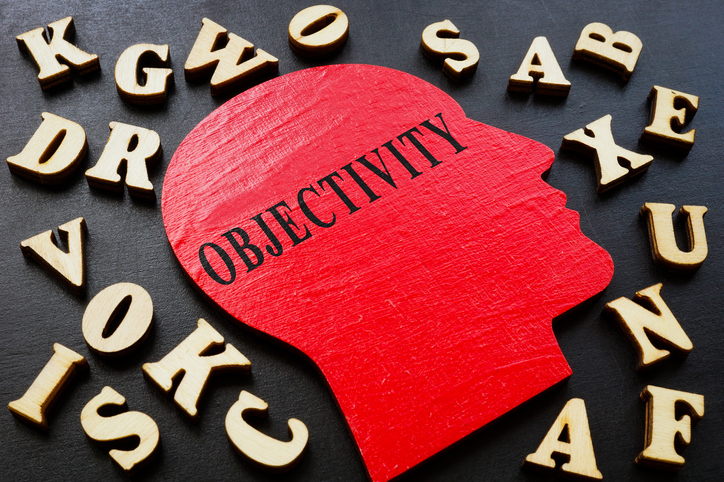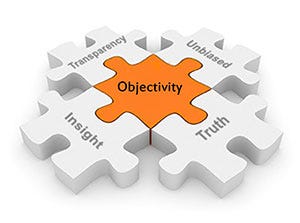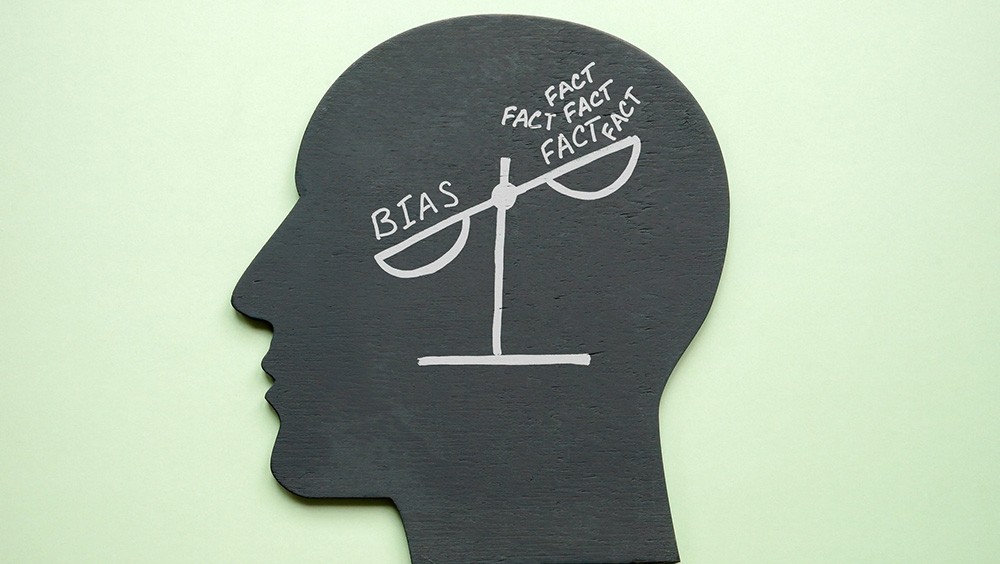Objectivity is often regarded as one of the most essential qualities for maintaining clarity and fairness in decision-making, relationships, and personal growth.
It allows individuals to navigate complex situations without the cloud of emotions, biases, or preconceived notions.
In a world where people are constantly bombarded with opinions, perspectives, and subjective information, the ability to approach life with an objective mindset is more crucial than ever.
This blog post explores the importance of objectivity, its benefits, and how it plays a critical role in fostering balance, rational decision-making, and personal development.
Subjectivity vs Objectivity | How the Mind Influences Reality (click here)
1. Defining Objectivity: More than Detachment

At its core, objectivity means seeing things as they are, without the distortion of personal bias, emotions, or external pressures. It doesn’t mean emotional detachment, but rather the ability to acknowledge emotions while not allowing them to dominate the decision-making process.
Objectivity requires an openness to facts and evidence, no matter how uncomfortable they may be, and a willingness to alter one’s views in light of new information.
In contrast, subjectivity is influenced by personal feelings, interpretations, and opinions.
While subjectivity has its place in creative pursuits or personal relationships, relying too heavily on it can lead to skewed perceptions, which may cause poor decisions or unfair judgments.
2. The Role of Objectivity in Decision-Making
One of the most critical areas where objectivity plays a central role is in decision-making.
Whether you’re facing personal, professional, or ethical dilemmas, objectivity allows you to weigh options based on facts, rather than emotions or external pressures.
Decision-making based on objectivity involves a clear, systematic approach: assessing the pros and cons, identifying potential biases, and considering long-term consequences.
Evidence from Research on Decision-Making
Numerous studies in psychology and behavioral economics have shown that emotional or subjective thinking can lead to poor decision-making. One notable study by Nobel laureate Daniel Kahneman and his colleague Amos Tversky outlined how cognitive biases, such as confirmation bias and emotional reasoning, often skew human decision-making.
Their groundbreaking work highlighted how people’s decisions are often irrational when they rely too heavily on emotions or subjective experience .
By being objective, individuals can avoid common cognitive traps such as the “halo effect,” where one positive trait of a person or situation overshadows other aspects, or “emotional reasoning,” where what one feels is mistaken for factual truth.
Instead, objectivity encourages critical thinking, leading to more balanced and rational decisions.
3. Fostering Fairness and Justice
Objectivity is essential for fairness and justice, not just in legal systems but in everyday life.
Being objective allows people to assess situations impartially, without being influenced by personal emotions or social biases, ensuring that all individuals are treated equally and justly.
Evidence from Social Psychology
Research from social psychologists highlights how unconscious biases can distort our perceptions of others, often leading to unfair treatment or inequality.
Studies by Mahzarin Banaji and Anthony Greenwald on implicit bias show that people, even with the best intentions, often make judgments based on ingrained social stereotypes rather than objective assessments of individuals .
For example, in hiring practices, managers may unconsciously favor candidates who share their background or worldview.
Objectivity combats these ingrained tendencies, allowing people to see situations from multiple angles and approach them fairly.
It is the cornerstone of ethical decision-making in courts, workplaces, and personal relationships, ensuring justice is served based on evidence rather than emotional influence.
Subjectivity and objectivity (philosophy) according to Wikipedia (click here)
4. Personal Growth and Self-Improvement
Objectivity is not just a tool for making external decisions; it is also crucial for self-assessment and personal growth.
It allows individuals to look at their own behaviors, strengths, and weaknesses without ego getting in the way.
Being objective with oneself requires honesty and the ability to accept criticism—both from others and from within.
The Role of Objectivity in Self-Reflection
Self-reflection is an essential part of personal growth, and objectivity is vital in this process.
If individuals are overly subjective, they may either overestimate their abilities (leading to arrogance) or underestimate themselves (leading to low self-esteem).
Objectivity allows people to recognize both their positive attributes and areas for improvement without emotional distortion.
In fact, research from the field of cognitive-behavioral therapy (CBT) suggests that objective self-assessment can help individuals overcome negative thinking patterns, such as catastrophizing or black-and-white thinking .
Moreover, objectivity in self-reflection encourages a growth mindset.
People who objectively assess their failures and learn from them are more likely to develop resilience and long-term success than those who react emotionally to setbacks.
They can see failures as learning opportunities rather than personal affronts, which is key to growth and development.
5. The Role of Objectivity in Relationships
In relationships—whether romantic, familial, or professional—objectivity is vital for maintaining healthy dynamics.
Often, conflicts arise because emotions override clear thinking, leading to misunderstandings, misinterpretations, or disproportionate reactions. Objectivity allows people to step back from the heat of the moment, see the situation from multiple perspectives, and respond in a way that promotes resolution rather than escalation.
Evidence from Conflict Resolution Studies
Studies in conflict resolution, particularly in mediation, have shown that parties who approach disputes with an objective mindset are far more likely to reach successful resolutions.
Mediators, for example, are trained to remain neutral and objective to help both sides of a conflict see the bigger picture.
This approach has been found to reduce tension and foster cooperation, according to research from the Harvard Law School’s Program on Negotiation .
When individuals in personal relationships practice objectivity, they are more likely to address issues calmly and rationally, focusing on solving the problem rather than assigning blame or reacting impulsively.
This approach not only strengthens relationships but also fosters mutual respect and understanding.
6. Objectivity and the Search for Truth
At a broader level, objectivity is essential for the pursuit of truth, whether in science, journalism, or philosophy.
In an era of “fake news,” misinformation, and conspiracy theories, the ability to think objectively is more important than ever.
Objectivity allows individuals to sift through vast amounts of information, separate fact from opinion, and form conclusions based on evidence.
Scientific Objectivity
The scientific method itself is grounded in objectivity.
Hypotheses are tested through controlled experiments, with results that can be replicated by others.
This objective approach ensures that conclusions are based on data, not personal belief or bias.
As noted by renowned physicist Richard Feynman, “The first principle is that you must not fool yourself—and you are the easiest person to fool” .
Science thrives on the principle that personal biases must be set aside in the search for objective truth.
In daily life, applying similar principles—whether fact-checking information before sharing it or questioning one’s own assumptions—can help maintain intellectual integrity and contribute to a well-informed, rational society.
Conclusion: The Power of Objectivity
In a world filled with complexity, emotion, and subjective information, objectivity serves as a crucial tool for maintaining clarity, fairness, and personal growth.
It is an invaluable asset in decision-making, conflict resolution, personal reflection, and the search for truth.
Objectivity doesn’t negate the importance of emotions or personal experiences, but it offers a way to balance them with rationality and evidence. By cultivating objectivity, individuals can navigate life more effectively, make fairer decisions, foster stronger relationships, and grow in meaningful ways.
Embracing objectivity is not just about making better choices—it’s about living with greater clarity, fairness, and purpose.



















